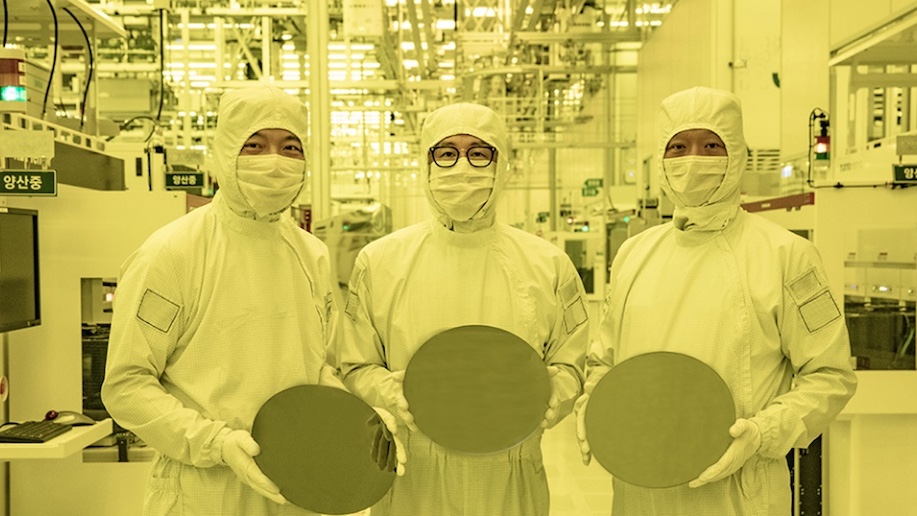Samsung Has Started 3nm Chip Manufacturing: Will Make 16% Smaller Chips

As earlier reported, Samsung is moving ahead with its 3nm chip manufacturing process. The company announced the start of its initial production of a 3-nanometer (nm) process node applying Gate-All-Around (GAA) transistor architecture.
Samsung is currently leading the charts of semiconductor manufacturers in the world. The company is already beating its rival TSMC in the silicon race and has set its eyes on being the first 3nm chip manufacturer globally.
Samsung’s 3nm chip will come with improved performance?
Firstly, The upcoming 3nm chipset from Samsung will implement the Multi-Bridge-Channel FET (MBCFET™), Samsung’s GAA technology, for the first time ever. This, according to Samsung, will lead to better power efficiency and higher performance in the devices.
Samsung mentioned a few numbers regarding the upcoming 3nm chip performance bump. The new 3nm process gets 45% reduced power usage, 23% enhanced performance, and 16% smaller surface area compared to the 5nm process.
Its the first application of the nanosheet transistor for high-performing chips, and Samsung plans to expand to mobile processors. With the new 3nm GAA technology, Samsung will be able to adjust the channel width of the nanosheet to cope with their performance and efficiency needs.
Although the production of Samsung’s brand new silicon has started, it’s improbable that we will get to see it in the upcoming Galaxy S23 lineup. It is making 2024 the company’s earliest target. Lastly, Samsung is going big on its brand new GAA technology and is quite optimistic about it.
“We will continue active innovation in competitive technology development and build processes that help expedite achieving maturity of technologies will continue active innovation,” said Dr. Siyoung Choi, President and head of business at Samsung electronics in the official press release.
Nevertheless, supply chain issues and global chip shortages are taking a heavy toll on tech giants forcing companies to re-use their older chipsets. Are you excited about high-performing Samsung silicon in the future? Comment down below.






